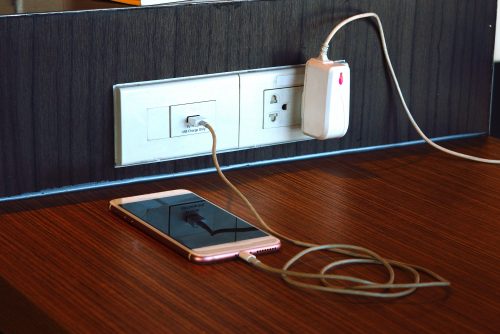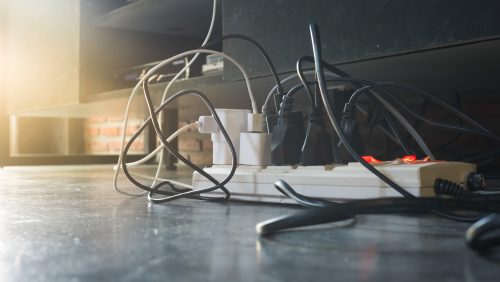By now, most of us have heard of “energy vampires” — those appliances and electronics that draw small amounts of power 24/7, even when we’re not using them. Unplugging some of these devices can be a piece of cake, whereas others can be a bit more of a hassle. So is it worth the trouble?
The energy costs of plugged-in appliances can really add up, and unplugging these devices could save your up to $100 to $200 a year. Another benefit of unplugging your appliances is protection from power surges.
Does Unplugging Appliances Save on Electricity?
Today’s modern homes are packed with electronic devices and electrical appliances. If you consider the host of small appliances sitting on the typical kitchen counter, the numerous electronics in most entertainment centers and the collection of small chargers it takes to power mobile devices for an entire household, you might count more than 20 plugs before you even get to the major appliances.
So while energy vampires do consume small amounts of electricity, a whole house full of them can add up to a noticeable amount on your monthly electric bill. How much money can you save when you unplug appliances? The Department of Energy’s Lawrence Berkeley National Laboratory estimates that an appliance that constantly draws one watt of electricity can cost up to $1 per year, and since many energy vampires use more electricity than that, annual costs can add up to $100 to $200 in the average home. That’s comparable to an entire month’s bill in some households.
If you’re curious about how much electricity your appliances and electronics are using when they’re not doing anything, you can use a handheld electricity monitor. Plug one of these devices into an outlet, then plug each appliance into it one by one with the appliance turned off. A digital display will show you how many watts you’re using, and you can tally up a grand total to see how much electricity you can save by keeping them unplugged.
New Habits, New Helpers
If you’ve resolved to keep more of your appliances unplugged, you may find that all it takes to make a difference is to establish some good new habits. Your phone charger is a good example of a device that you probably leave plugged in too often; even when your phone isn’t charging, it’s still drawing a little power. Remind yourself to unplug it and set it aside every time you unplug your phone.
Kitchen appliances also present easy opportunities to unplug because the outlets are usually right above your counter backsplash. Unless you really rely on your coffee maker’s digital clock, feel free to unplug it after you’ve brewed a pot.
But what about all those electronics in your entertainment center? They’re plugged in out of reach, and nobody wants to move a heavy piece of furniture just to save a few pennies. In cases like this, it may be worth spending a little money on a new power strip that will allow you to disconnect everything with one flip of a switch, even though your electronics are still physically plugged in.
Modern power strips offer a range of features that make saving money easier. Some have built-in timers that allow you to cut the power according to your schedule, and others have a few “always on” outlets so you can “unplug” most of your electronics while leaving a few essentials in standby mode. The most advanced power strips feature smart technology so you can control them from anywhere using your smartphone or tablet.
Other Benefits of Unplugging Appliances
Energy savings aside, there’s another upside to keeping appliances unplugged when you’re not using them: there’s no safer way to protect against power surges. Unless you have a whole-home surge protection system or individual surge protectors all over your house, some of your plugged-in devices are probably vulnerable to surge damage.
It doesn’t take a huge surge from a lightning strike or a transformer explosion to damage your appliances. Small surges occur commonly when other large appliances in your home turn on, such as your air conditioner or your refrigerator’s compressor. Over a long enough period of time, these small surges can gradually wear away at other appliances on the same circuit, shortening their useful lifespans.
And while the risk of electrical fire is small when your appliances are in good working condition, the only way to completely eliminate that risk is to keep them unplugged. So when it comes to devices you’re not using at the moment, what have you got to lose?

